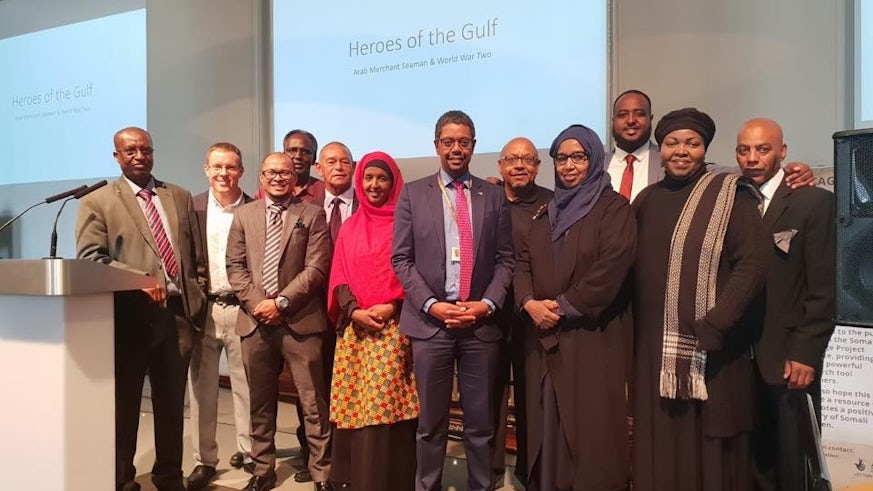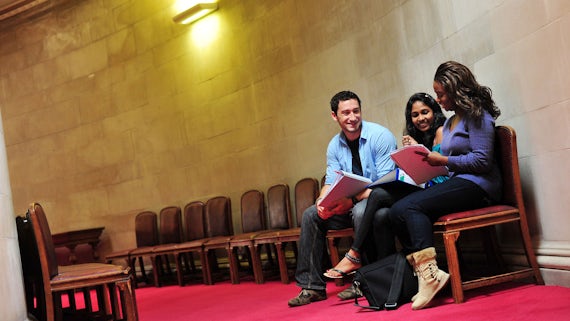Event explores hidden histories
24 October 2018

Lottery-funded research project shines a spotlight on previously unidentified Arab, Afro Caribbean, Welsh and Welsh located merchant seamen who fought and died during World War II.
Academics from Cardiff University’s School of Geography and Planning recently co-organised an event, to coincide with Black History Month, with the Horn Development Association (HDA), a local organisation supporting opportunities for BME communities.
The event was held at the Pierhead Building in Cardiff Bay, with the sponsorship and participation of Vaughan Gething AM, Cabinet Secretary for Health and Social Services. It was an opportunity for the HDA to share the results of an 18-month long research project, supported by the Heritage Lottery Fund, identifying merchant seamen lost during World War II.
Previously, these men were labelled simply as British on local rolls of Remembrance, denying them a full and proper commemoration in war losses. Research has now revealed where they were born, where they lived and their next of kin, according them the rightful respect and recognition of their sacrifices.
A range of Welsh Government, local council and academic representatives attended the event. They heard from several speakers including Councillor Fay Cunningham from South Tyneside, Bob Purkiss a former Merchant Seaman, trade union Secretary, and member of the Race Equality Commission for Wales.
Dr Richard Gale and Dr Andrew Williams from the School of Geography and Planning were also present. They have been working with the HDA as part of Cardiff University’s innovative and pioneering Community Gateway project, which aims to help make Grangetown an even better place to live and work by brokering university and community partnerships.
Dr Gale and Dr Williams will be working with the HDA to support follow-on research which will seek to reconstruct the multicultural history of South Wales' port cities in the first half of the 20th Century.
Dr Gale said: “We are excited to work with the HDA and help them continue their excellent work investigating, profiling and celebrating the impact and contributions of diverse ethnic groups on South Wales – culturally, economically and socially.”
Share this story
The School applies critical thinking and practical knowledge in solving economic, environmental and social problems to address the grand challenges faced by human societies and places today.


